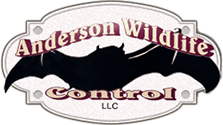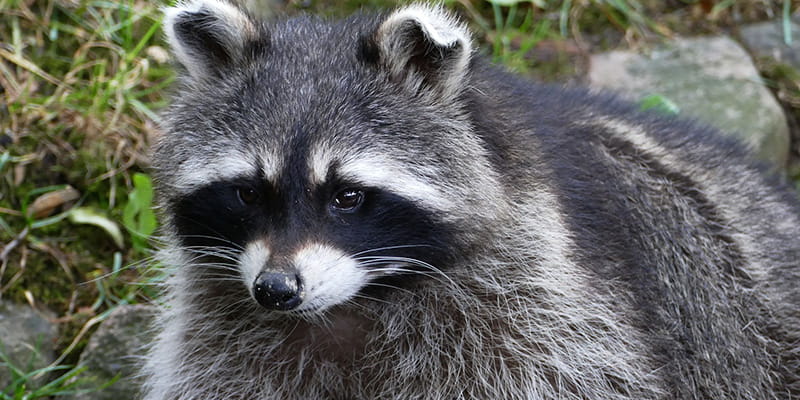You’re on your way to work, and you enter the garage early in the morning only to find it’s been ransacked. Was it thieves? Perhaps, if they’re thieves who eat garbage and leave paw prints.
It’s still winter in the northeast, and it’s not uncommon for “uninvited guests” such as raccoons to move into garages and sheds in search of shelter. (Raccoon paw prints look like this.)
Who Left the Garage Door Open?
Someone may have left a door open, or the raccoons may have found another way in. They’re smart, crafty and can squeeze into small spaces, so it may not be anyone in the family’s fault. Raccoons can also be very persistent, so putting up a barrier over one way in may inspire them to find another. So what can you do to evict them?
(Note: since the offenders are often mothers with babies, your goal should be a humane way to get the mother to move the babies to a location that isn’t your garage.)
Start by Offending Their Noses
Raccoons won’t urinate near their dens, so the smell of ammonia can cause them to vacate the premises. Experts recommend putting ammonia-soaked cloths into a sealed container pierced with air holes so the smell will escape into the garage or shed and permeate the air. You can use common household ammonia purchased from the supermarket. Take care not to breathe in the fumes of ammonia yourself, and NEVER mix ammonia with bleach.
Remove the Food and Water
While this won’t guarantee raccoons will leave, it helps to ensure you’re not keeping any “dinner” handy for your unwanted raccoons. Dog and cat food, bird seed and garbage should not be stored in the garage or shed. Also remove water sources such as garden hoses or bowls of dog water. The point is to make it difficult for the raccoons to feel at home.
Make Sure the Raccoon Sees You
A raccoon mother whose living space in a shed or garage has been discovered by the homeowner is usually frightened enough to move her babies within 48 hours with no other intervention. By “raiding” their space, you can often scare the mother and babies out using what’s known as “human harassment.” Leaving lights or a radio on for light and noise can also encourage your unwanted tenants to find a new home.
Call a Professional
If you’re unsure of what to do or worried about coming into contact with wild animals (it’s a bad idea to physically confront any wild animal), it’s best to let experts determine a safe and compliant way to get the animals to leave.
Pest management professionals like Anderson Wildlife will find the most humane way to make sure that your new tenants leave your garage or shed and don’t return next time they need a place to live.






